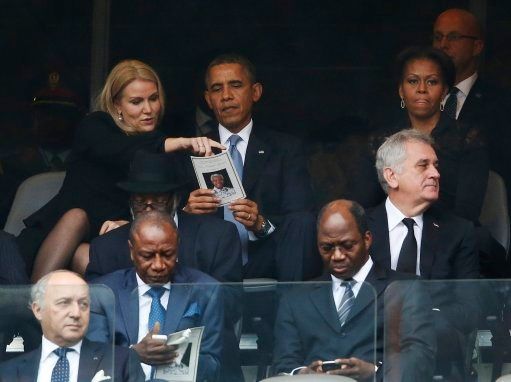You know how it is. You’re chillaxing at a memorial service of unprecedented international significance, you take a moment out to snap a “selfie” (a self-portrait snapped using a smartphone) and the world’s media blow it out of all proportion. That’s what happened to David Cameron, Barack Obama and Danish Prime Minister Helle Thorning-Schmidt, anyway. The trio have been heavily criticised in the media after they were caught photographing themselves together at a ceremony to mark the passing of iconic South African statesman Nelson Mandela yesterday.
Yet what was surprising about this lapse of judgement wasn’t its tastelessness so much as what it revealed about the three politicians’ sense of what is normal.
Like many things, the selfie is not as widespread as you would imagine it to be if you peruse the online media extensively. The Oxford English Dictionary may have declared it their word of the year but outside of a sixth form school disco you would be unlikely to see one in the wild. It is one of those concepts invented to fill space by the shadowy cabal of social media experts and TV producers who control British public life, like vajazzling or Nigel Farage.
Politicians' music taste—that classic media battleground—is another prime example. When forced to air their record collections in public, our leaders tend to fall at either end of a spectrum. Some come across as up to date but poorly-versed (read: hastily briefed), like Gordon Brown who claimed in 2006 to like indie noisemakers du jour The Arctic Monkeys but then could not name a single track from their debut album. Others come across as bland and removed, like Ed Miliband whose recent desert island discs choices were widely seen to betray a lack of any music taste whatsoever. Both extremes reveal a distance from the kind of ordinary daily routine which involves listening to a record because you like the sound of it.
At some stage in the past year it's possible that Obama, Cameron and Thorning-Schmidt will have been handed a primer on the selfie prepared by sharp-jacketed young advisors. Naturally enough, they will have started to adopt the practice. Why not? Apparently everyone else is. It's humanising when you get it right, too—just like the barrage of sub-Hallmark christmas card efforts foisted on us in recent weeks.













